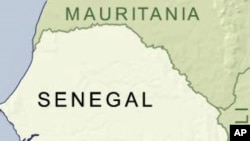Health officials from more than 20 African countries have been meeting in Dakar to discuss progress toward the U.N. Millennium Development goals on women's health.
The symposium, hosted by the U.N.'s Economic and Social Council, met in Dakar and brought together experts on women's health from more than 20 African countries. They included representatives from Niger and Democratic Republic of Congo, two countries facing elevated maternal mortality rates.
The aim of the meeting was to discuss progress made in meeting the Millennium Development goals on women's health. Among the eight goals are two which pertain to women's health - shrinking the inequality gap in sub-Saharan Africa and improving maternal mortality rates.
The target of the latter is to reduce maternal deaths by three quarters from 1990 to 2015. But progress has been mixed.
In 1990, 920 per 100,000 births in Africa led to the mother's death. In 2005, 900 per 100,000 births resulted in the mother's death.
The symposium discussed the fact that fewer than half of all pregnant women in sub-Saharan Africa have access to adequate pre-natal care.
Senegal's Minister of Families Ndèye Khady Diop said that although Senegal is closer to achieving the goal than neighboring countries, there are challenges to address.
She added that women usually bear the brunt of household work in Senegal and have little time to spend on their own wellbeing.
Delegates discussed solutions that might help speed the accomplishment of the goals.
Some poorer African countries are embracing health care by distance, including video consultations linked to doctors in countries such as India. But technological solutions to limited healthcare resources bring their own challenges, including access to electricity, the internet and the danger of power cuts.
Moudou Diagne Fada is Senegal's Minister of Health:
He said every infant and maternal death can be considered a failure of the leadership of that country. He added that in many African countries, funds do not trickle down to reach the most vulnerable women, including school-age girls who fall pregnant and embark on risky abortions.
The meeting was part of the preparation process for a review on women's empowerment and the Millennium Development goals to be held in New York in September.
African Health Officials Meet in Dakar to Discuss Progess on Women's Health
- By Kate Thomas

Experts on women's health from more than 20 African countries are attending the U.N.-sponsored gathering



